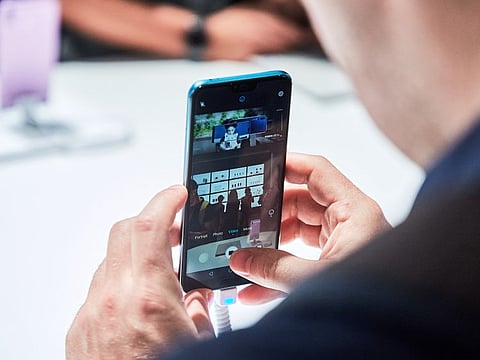Today’s smartphone user needs more security and privacy than ever before
Huawei prioritises security to ensure completely privacy and safety of their consumer

Smartphones have become a quintessential part of our lives. With their rising importance in our lives, privacy of our digital lives becomes increasingly important every day. From personal documents to business-related emails or credit card information, privacy is emerging as an immensely important factor to go hand in hand with innovation.
Huawei has become a huge part of this privacy-based conversation in the past few years. Over the past eight years, Huawei's smartphone shipments have increased from 3 million units in 2010 to 200 million units in 2018, reflecting approximately a sixty-six-fold growth. In the global smartphone market, Huawei has gone from being dismissed as a statistical "other" to ranking among the top 3 players in the world. And in the second and third quarters of 2018, Huawei became the world's second largest smartphone manufacturer, with a global market share of 14.6%*.
At present, Huawei smartphones are in the hands of more than 500 million consumers in more than 170 countries around the world. As the years go by and especially last year with the launch of the Huawei Mate 20 series, ‘innovation’ and Huawei seem to be becoming synonymous.
Understanding their responsibility to their rapidly growing consumer-base, Huawei Consumer Business Group has continuously innovated and invested in cyber security and privacy protection over the past few years. The Consumer BG has more than 200 experts and engineers working on security research and development. They’ve also worked with the 2012 Labs to set up cyber security research centers in China, Germany, Finland, Canada, and Singapore.
So how are Huawei devices made so secure?
To ensure completely privacy and safety of their consumer’s usage, data and experience, Huawei privacy protection measures extend from the products development, right into the devices hardware and software.
Design
Huawei’s privacy protection measures extend from the product’s design throughout the entire development process and complies with GAPP principles– the most stringent privacy technology framework in the world – and all requirements set forth in the EU's General Data Protection Regulation (GDPR). The company applies Privacy by Design throughout product development, design, verification, sales, services, and procurement activities.
Hardware
Huawei understands the importance hardware and software play in ensuring user privacy protection. When it comes to hardware, fintech-level security is delivered with the company’s leading mobile security platform solution, Hi Security Executive Environment (HiSEE), which is offered on their Kirin chips.
Software
When it comes to software, Huawei’s EMUI system fully complies with Google's security framework. The company build on native Android capabilities to further enhance the security of the system, data, and applications. Huawei even understand how software needs to be well built as well as well maintained. Keeping that in mind, the company is always in line with Google's security patch upgrade policy and patches are promptly released to repair any vulnerabilities and keep devices safe.
Many more measures are taken to maximize consumer security. Data security of mobile services is being maximized by providing secure and reliable unified access through Huawei ID accounts, dual authentication, OAuth authentication, unified certificate management, and access control by service and by role. Huawei also adopts data protection technologies including end-to-end data encryption, unified key management, anonymization technology, and secure deletion to protect user data.
It’s important to remember that a smartphone serves as the bridge between the physical and virtual worlds, and to continue to play that role, it must constantly store and protect more and more information. Therefore, Huawei believes that the privacy and security of its users is just as important as making outstanding and appealing products.
*IDC: global smartphone market share, 3rd quarter of 2018
This content comes from Reach by Gulf News, which is the branded content team of GN Media.